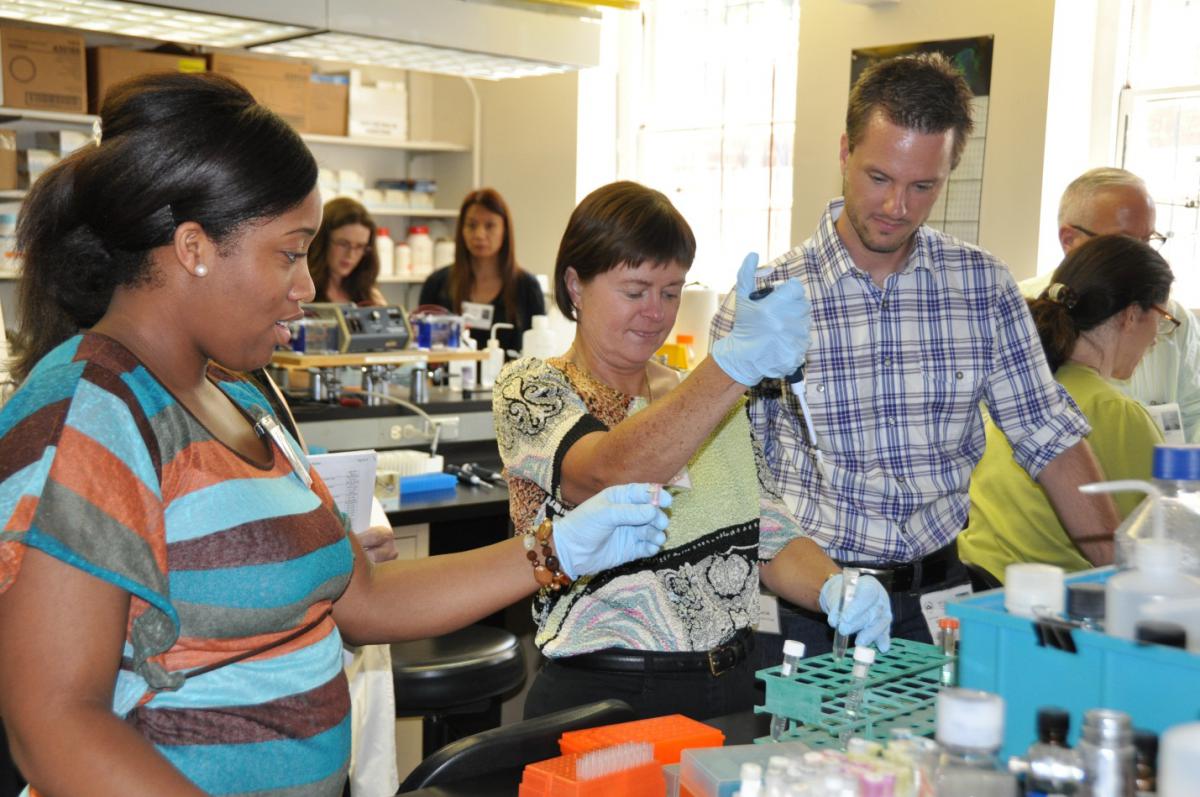
Nurses understand that improving health and advancing health equity means addressing a variety of needs (physical, emotional, and social) in the context of people’s own resources, as well as those of their family and community. NINR research uses this holistic perspective to improve health and advance health equity by identifying nursing practice and policy solutions, across clinical and community settings, that are responsive to the realities of people’s lives and living conditions.
 Graduate nursing students and nursing faculty attending the NINR Methodologies “Boot Camp.”
Graduate nursing students and nursing faculty attending the NINR Methodologies “Boot Camp.”
NINR is developing its Strategic Plan for 2022-2026, and the Institute remains committed to science that tackles the most pressing health challenges and persistent health disparities, addresses social determinants of health, and informs nursing practice and policy.
NINR recognizes the strong relationship between a diverse nursing research workforce and research endeavors that include diverse study populations, with the goal of improving health for all. A diverse workforce translates to better science for many reasons, such as providing different perspectives and enhancing innovation, but it’s also critical for building public trust with distinct populations that should not only participate in—but also benefit from—research.
The American Association of Colleges of Nursing assessed the demographics of the nursing student population in their recent report: Advancing Higher Education in Nursing, 2019 Annual Report.
Nursing students from underrepresented races and ethnicities comprised:
- 34.2 percent of students in entry-level baccalaureate programs
- 34.7 percent of master’s students
- 33.0 percent of students in research-focused doctoral programs
In terms of gender breakdown, males comprised:
- 13.4 percent of students in baccalaureate programs
- 12.2 percent of master’s students
- 11.2 percent of research-focused doctoral students
While the number of nursing students and future researchers from racially and ethnically diverse backgrounds has grown, there is significant room for improvement—more must be done to ensure that sufficient representation becomes a reality soon.
Through close research partnerships with communities, a diverse nursing research workforce will be well-positioned to develop high-impact, scalable, and sustainable interventions to address our nation’s most pressing health problems.
At NINR, over 75 percent of our research applications focus on topics to which African American scientists disproportionately apply and wish to investigate. This is the second highest percentage at NIH. Moreover, approximately one-third of NINR’S funding focuses on research to eliminate health disparities.
NINR is committed to providing training opportunities needed to overcome scientific roadblocks and solve the nation’s most pressing health problems—especially those that disproportionately affect health disparity populations.
- Ruth L. Kirschstein National Research Service Award (NRSA) Individual Predoctoral Fellowship to Promote Diversity in Health-Related Research (Parent F31-Diversity)
- Research Supplements to Promote Diversity in Health-Related Research (Admin Supp - Clinical Trial Not Allowed)
- Administrative Supplements to Promote Diversity in Research and Development Small Businesses-SBIR/STTR (Admin Supp Clinical Trial Not Allowed)






